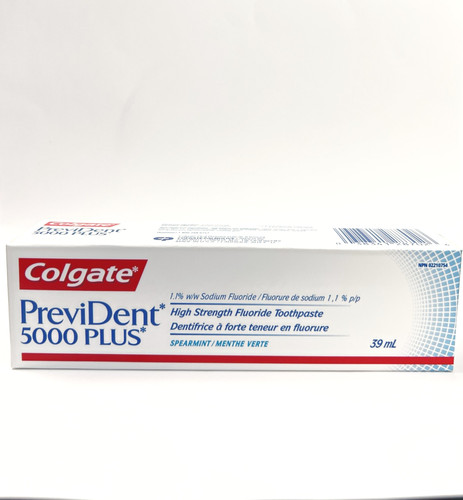Lactose Intolerance And Eczema
Lactose intolerance and eczema are two distinct health conditions that can significantly impact an individual’s quality of life. While they may seem unrelated at first glance, there is ongoing research into the potential connections between the two. In this comprehensive article, we’ll delve into the world of lactose intolerance and eczema, exploring their causes, symptoms, and treatment options, as well as examining the possible links between these conditions.
Understanding Lactose Intolerance
Lactose intolerance is a condition where the body is unable to digest lactose, a sugar found in milk and other dairy products. This occurs when the small intestine does not produce enough lactase, the enzyme responsible for breaking down lactose. As a result, undigested lactose remains in the colon, where it is fermented by bacteria, leading to uncomfortable symptoms such as bloating, gas, diarrhea, and stomach cramps.
Lactose intolerance is often confused with a milk allergy, which is an immune system reaction to one of the proteins in milk, such as casein or whey. However, lactose intolerance is not an allergic reaction, but rather a digestive issue.
Understanding Eczema
Eczema, also known as atopic dermatitis, is a chronic skin condition characterized by dry, itchy, and inflamed skin. The exact cause of eczema is still not fully understood, but it is believed to involve a combination of genetic, environmental, and immune system factors. Eczema can manifest in various forms, ranging from mild to severe, and can affect any part of the body.
Symptoms of eczema may include redness, itching, swelling, crusting, and scaling. In severe cases, eczema can lead to secondary infections, scarring, and significant emotional distress.
Possible Connections Between Lactose Intolerance and Eczema
While the exact relationship between lactose intolerance and eczema is still being researched, there are several theories that suggest a potential connection:
- Gut-Skin Axis: The gut and skin are connected through the gut-skin axis, a bidirectional communication network that involves the gut microbiome, the immune system, and the skin. An imbalance in the gut microbiome, which can be caused by lactose intolerance, may contribute to the development or exacerbation of eczema.
- Inflammation: Both lactose intolerance and eczema involve inflammation, which can lead to a vicious cycle of skin and gut issues. The inflammation caused by lactose intolerance may exacerbate eczema symptoms, and vice versa.
- Immune System: Lactose intolerance and eczema may both involve an overactive immune response, which can lead to chronic inflammation and tissue damage.
Diagnosis and Treatment
Diagnosing lactose intolerance typically involves a combination of physical examination, medical history, and tests such as:
- Hydrogen breath test: Measures the amount of hydrogen in the breath, which is produced when undigested lactose is fermented by bacteria.
- Lactose tolerance test: Measures the body’s ability to digest lactose.
- Stool test: Checks for the presence of lactose in the stool.
Eczema diagnosis involves a physical examination, medical history, and sometimes skin tests to rule out other conditions.
Treatment for lactose intolerance usually involves avoiding lactose-containing products or taking lactase enzyme supplements. For eczema, treatment options include:
- Topical corticosteroids: Reduce inflammation and itching.
- Topical immunomodulators: Modify the immune response.
- Moisturizers: Help to repair and protect the skin barrier.
- Lifestyle changes: Avoid triggers, maintain a healthy diet, and manage stress.
Dietary Approaches
Dietary changes can play a significant role in managing both lactose intolerance and eczema. For individuals with lactose intolerance, a lactose-free or low-lactose diet may be necessary. For those with eczema, a balanced diet rich in fruits, vegetables, whole grains, and lean proteins may help to reduce inflammation and promote skin health.
Some specific dietary recommendations for eczema include:
- Increasing omega-3 fatty acid intake: Found in fatty fish, flaxseeds, and walnuts, omega-3s can help to reduce inflammation.
- Adding probiotics: Beneficial bacteria that can help to maintain a healthy gut microbiome.
- Avoiding common allergens: Such as dairy, gluten, and nuts, which may trigger or exacerbate eczema symptoms.
Can lactose intolerance cause eczema?
+While there is no direct causal link between lactose intolerance and eczema, research suggests that an imbalance in the gut microbiome, which can be caused by lactose intolerance, may contribute to the development or exacerbation of eczema.
How can I manage lactose intolerance and eczema together?
+Managing both conditions requires a comprehensive approach that includes dietary changes, lifestyle modifications, and medical treatment. Avoiding lactose-containing products, taking lactase enzyme supplements, and using topical treatments for eczema can help to alleviate symptoms.
Are there any natural remedies that can help with lactose intolerance and eczema?
+Natural remedies such as probiotics, omega-3 fatty acids, and certain herbal supplements may help to alleviate symptoms of lactose intolerance and eczema. However, it is essential to consult with a healthcare professional before adding any new supplements to your regimen.
Conclusion
Lactose intolerance and eczema are two complex conditions that can have a significant impact on an individual’s quality of life. While the exact relationship between the two is still being researched, it is clear that dietary changes, lifestyle modifications, and medical treatment can help to alleviate symptoms. By understanding the potential connections between lactose intolerance and eczema, individuals can take a proactive approach to managing their symptoms and improving their overall health.


